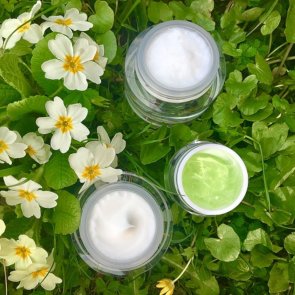How to Choose the Right Moisturizer for Oily Skin
 Contrary to a popular misconception, oily skin does need moisturizing. Without it, oily skin will become dehydrated, and will overcompensate by producing more oil, becoming even greasier and shinier than before. Of course, you need to choose the right moisturizer for your skin to benefit from it. Here are a few tips on picking a moisturizer for oily skin.
Contrary to a popular misconception, oily skin does need moisturizing. Without it, oily skin will become dehydrated, and will overcompensate by producing more oil, becoming even greasier and shinier than before. Of course, you need to choose the right moisturizer for your skin to benefit from it. Here are a few tips on picking a moisturizer for oily skin.Look for a Lightweight Product
Leave rich and heavy creams for people who have dry skin, because oily skin won’t benefit from a thick-textured moisturizer. On the contrary, such a product can clog pores and make your skin look shinier than usual. The best options for oily skin are lightweight lotions, gels and emulsions.
Read the Label Carefully
Moisturizers for oily skin are typically labeled as water-based, oil-free, non-acnegenic and/or non-comedogenic. However, oil-free products can still contain ingredients that can clog your pores (such as waxes) so you should examine the ingredient list too. Water-based moisturizers for oily skin usually contain silicones that prevent dehydration and control oily shine. Ingredients that you should avoid include paraffin, mineral oil and petrolatum.
Check this out: 8 Effective Ingredients for Oily Skin
Don’t Forget About SPF
Absolutely all skin types need protection from the sun. Since you should avoid layering too many different products on oily skin, you need to look for a moisturizer that has SPF so that you won’t need to use sunscreen on top of your moisturizer.
Check this out: 6 Tips for Relieving Sunburn
Think About Factors Other Than Your Skin Type
While choosing a moisturizer for oily skin, consider other factors like season and your age. For example, if your skin is not acne-prone, you may want to switch to a heavier lotion during the winter months, when even oily skin may get flaky and itchy. And anti-acne moisturizers for teenage skin are very different from, say, anti-age moisturizers for acne-prone skin.
Check this out: 5 Skin Care Tips for Teenagers
Remember That Moisturizing Is Just a Step in Your Skincare Regimen
It is important that your moisturizer combines well with other skincare products you use. For example, some moisturizers for oily skin contain exfoliating ingredients (salicylic acid, AHAs, retinol) that help combat acne. But if you use topical treatments, lotions, serums or other anti-acne products with these ingredients, such a moisturizer may increase peeling and irritate the skin. Before buying a moisturizer, consider whether it will fit into you existing skincare routine.
Check this out: 7 Basic Steps of a Proper Skincare Routine